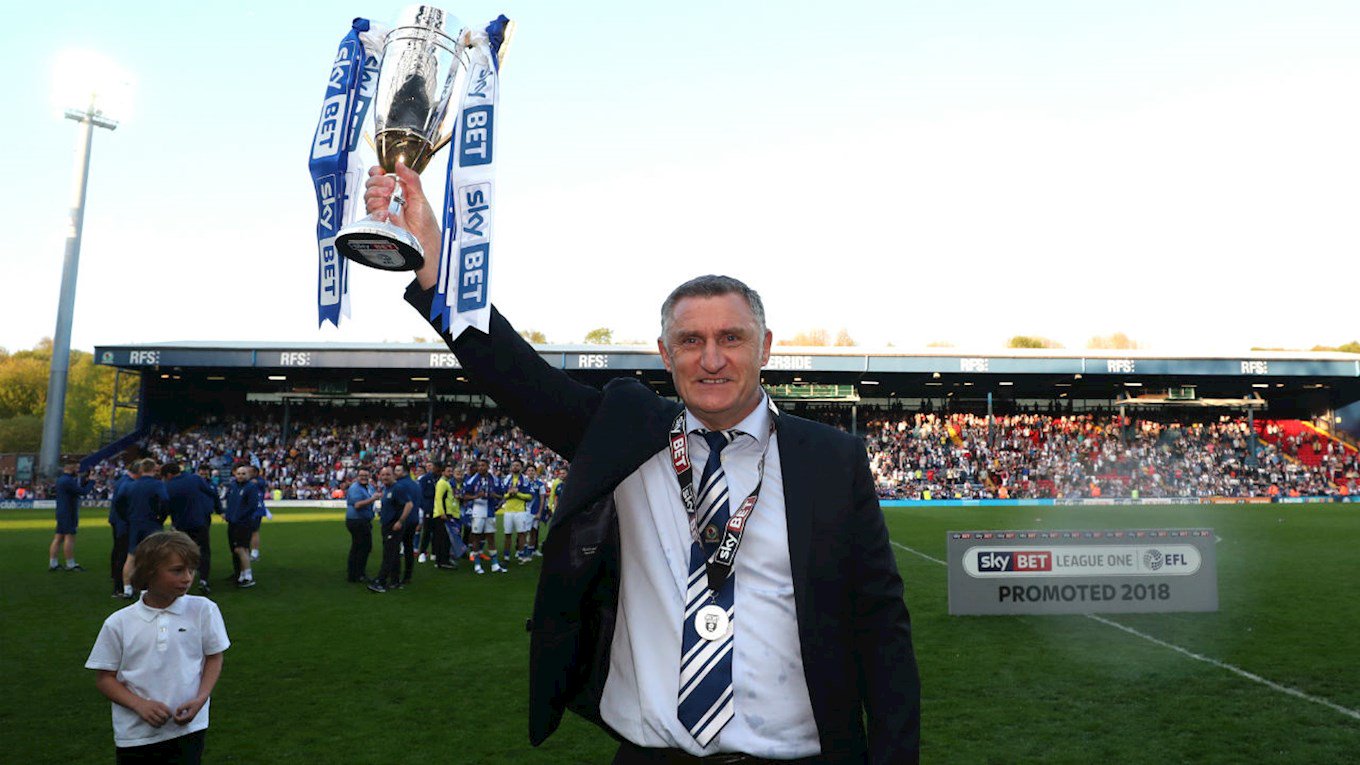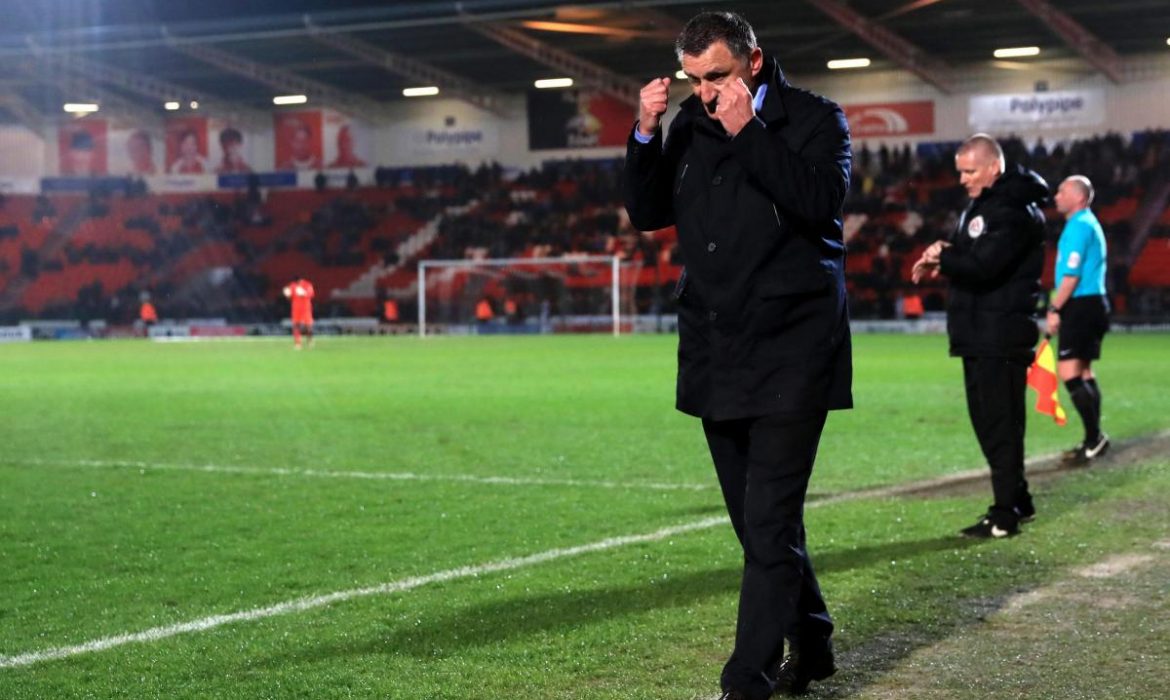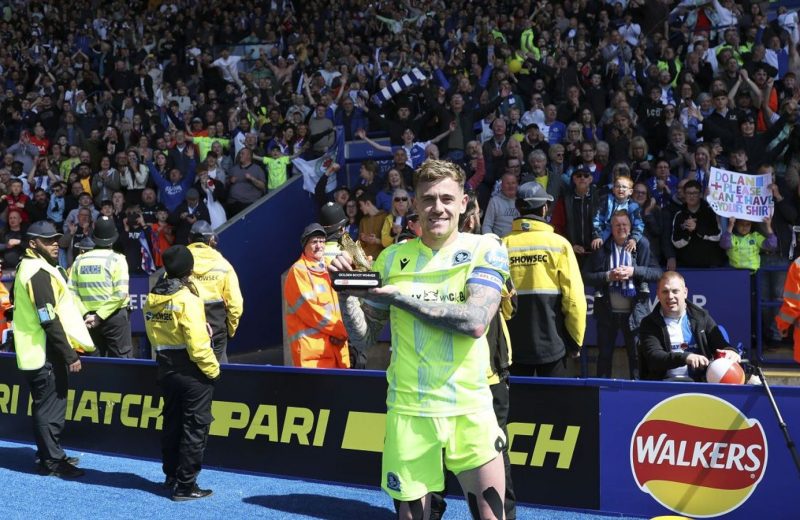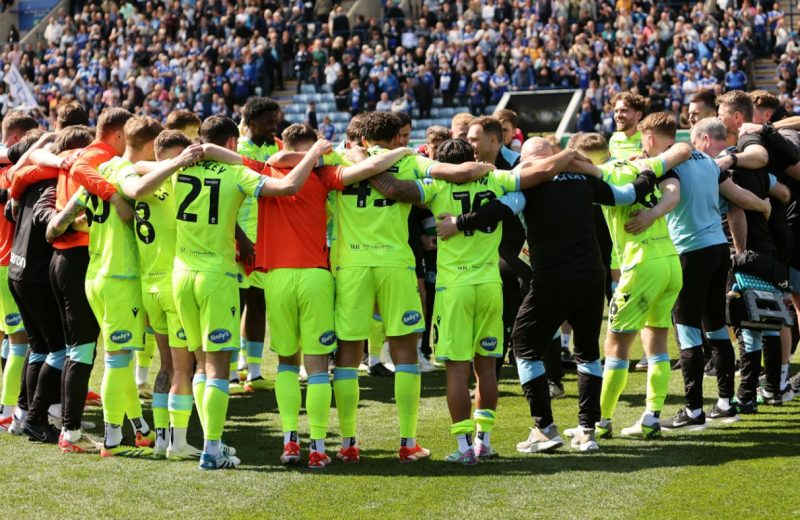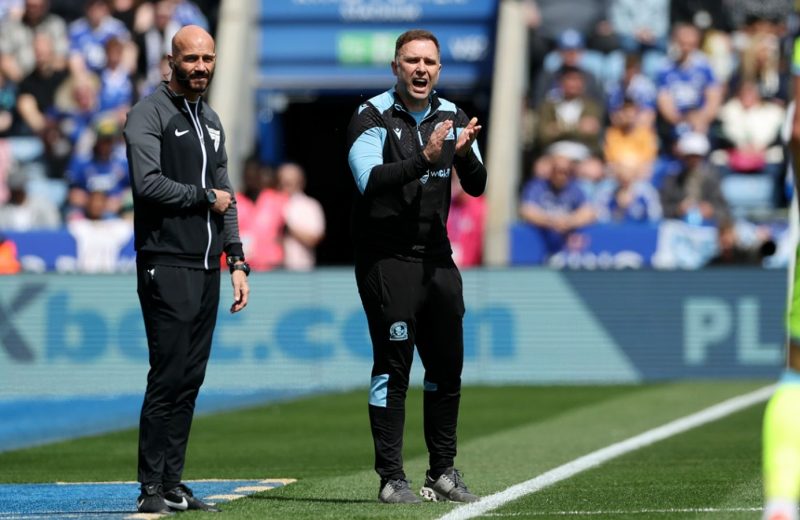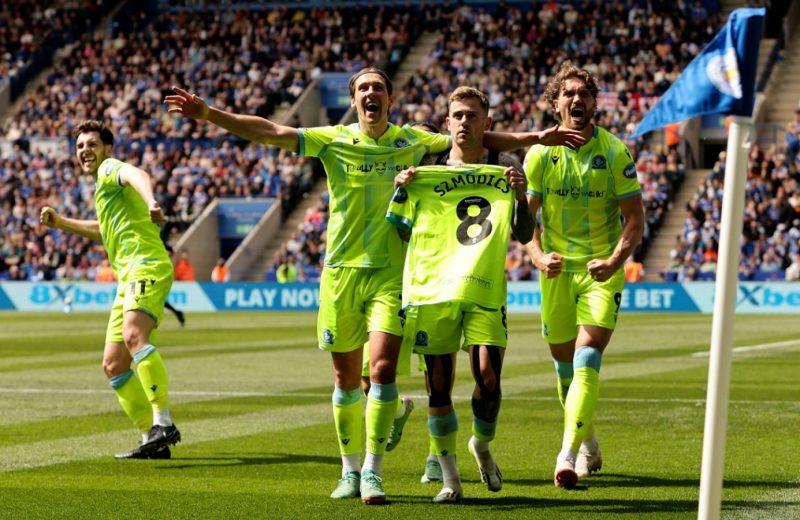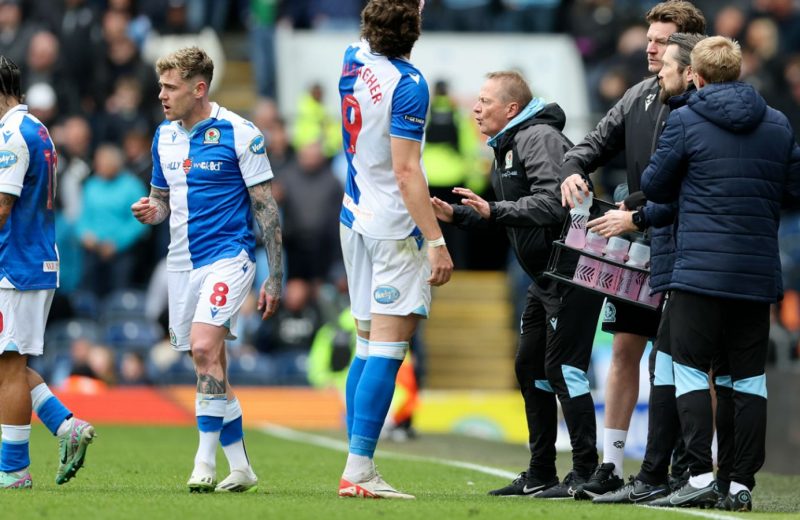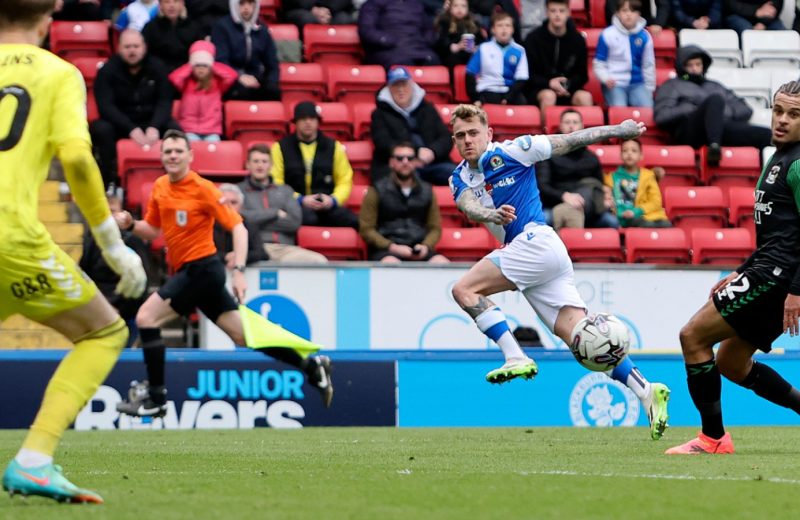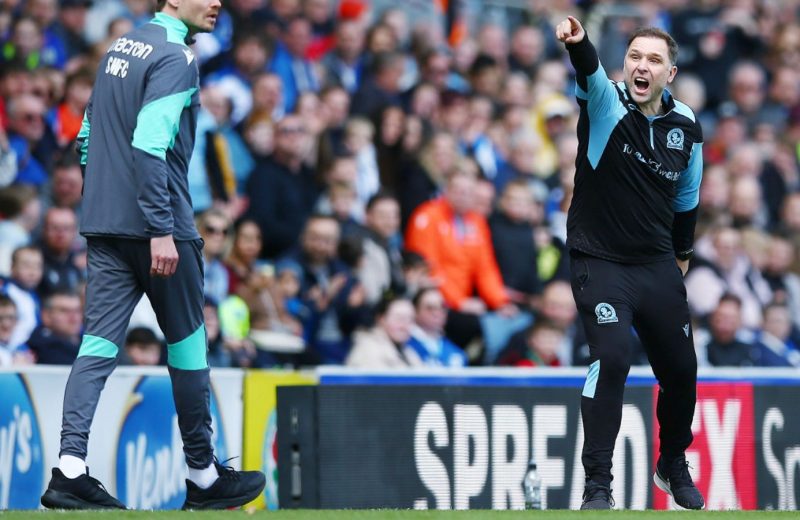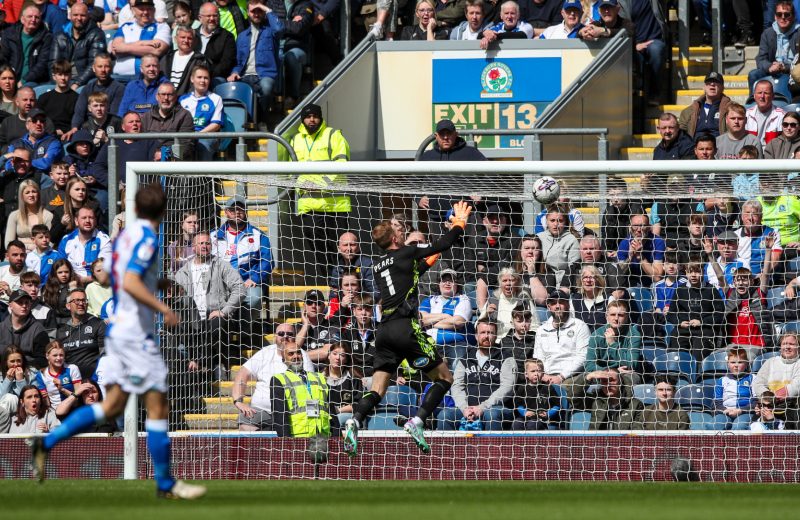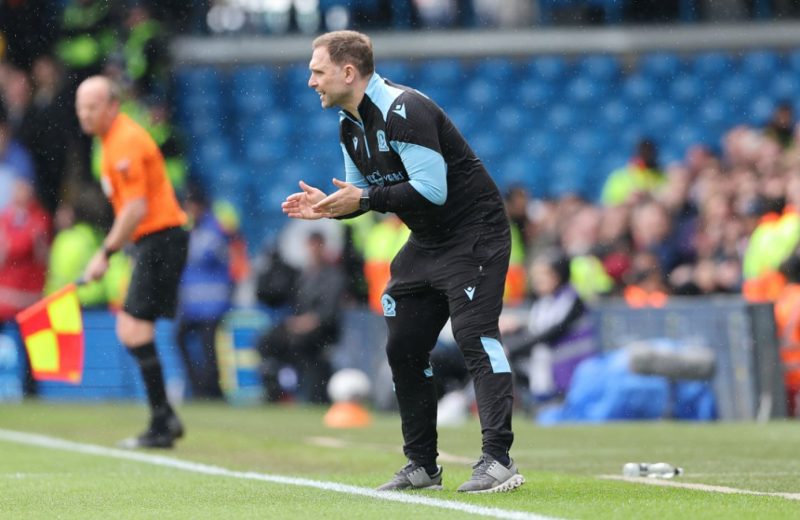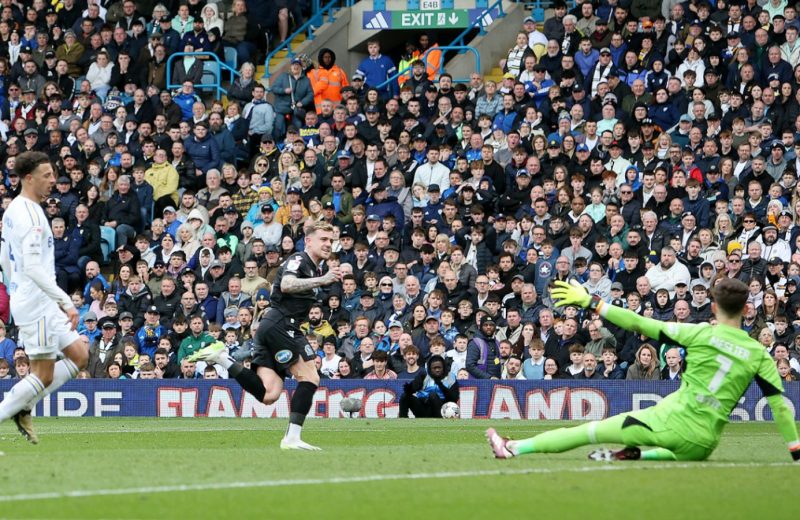After five years, two months and twenty days, Blackburn Rovers and Tony Mowbray have announced that both parties will part ways, after it was confirmed today, that the manager will leave following the conclusion of his contract, on 30th June 2022.
The 58-year-old manager came through the doors at Ewood Park on 22nd February 2017 with Rovers sat 23rd in the Sky Bet Championship on 30 points after 32 games, following Owen Coyle’s disastrous tenure in the hotseat. Mowbray arrived in East Lancashire only a day after his predecessor left the club and only three days after Rovers were dumped out of the FA Cup in the Fifth Round by Manchester United, following a 2-1 defeat.
Mowbray’s impact on the squad proved instant, as despite drawing his opening game away at Burton Albion, 1-1, the now former boss went on to guide Rovers to five wins and seven draws from the 15 games we managed towards the end of the season. Despite only picking up three defeats from his brief end-of-season spell and 22 points which saw Rovers hit an average points per match of 1.47 and 10th in the table based on those 15 gameweeks, the damage had already been done with Mowbray being unable to prevent Rovers from being the first Premier League champions to fall into League One.
Although there was obvious frustration and disappointment that Rovers had fallen into the third tier of English football for the first time since 1979-80 on just goal-difference, Mowbray began a rebuilding job which helped bring the club back to the town of Blackburn. After keeping influential figures such as Danny Graham, Elliott Bennett and Charlie Mulgrew, Mowbray added a blend of youth and talent to the experience he already possessed within his squad, with the integration of youth academy graduates, David Raya and Ryan Nyambe alongside the signings of Bradley Dack and Richie Smallwood. Although the season started slowly, Rovers and Mowbray were able to adapt to the environment they were in, to go on to break multiple club and individual records, including the setting of a new club away record and having the highest scoring defender in English football for 2017-18, in skipper, Charlie Mulgrew, who ended the league campaign with 14 goals to his name, including the promotion-clincher away at Doncaster Rovers.
Alongside Mowbray’s on-field improvements, the ties that the former boss was able to create with the Owners in India proved vital throughout an uncertain time for the club and their fans. Mowbray proved to be a reliable and trustworthy mouthpiece for both sides, as the Venky’s trusted the manager, whilst the fans respected the honesty and plan that Mowbray had set out for the football club, during the promotion campaign.
The manager was able to build upon his success in getting Rovers out of League One, by helping consolidate the side into a respectable Championship club, finishing 15th in 2018-19 and 11th in 2019-20. Although Rovers flirted with the idea of sneaking into the playoffs throughout both seasons, on multiple occasions, a prolonged campaign proved to be a step too far for Mowbray’s team as they ran out of steam during the second-half of both campaigns, a tale that would prove to be familiar. Although surprise playoff appearances in Rovers’ first and second years back were a bridge too far for Rovers, Mowbray put his stamp on the side by raising the level of quality, whilst reducing the side’s average age between 2018 and 2020.
Crucial additions such as Joe Rothwell, Adam Armstrong, and Ben Brereton – pre-Díaz(!) – all arrived at the start of 2018-19 for cash fees, as Mowbray as Rovers survived comfortably following their return to the second tier of English football, despite the elephant in the room being the new year form. Mowbray hoped to build on his side’s consolidation during the summer of 2019, but despite the return of former loanee, Sam Gallagher from Southampton for a reported fee of £5m, Rovers sanctioned the sale of David Raya to Brentford for a reported £3m, which left Rovers with a gaping hole to fill between the sticks.
Whilst Mowbray had recuperated most of what he had spent with the Raya sale, Rovers dipped into the free agency market, signing former England and Germany internationals, Stewart Downing and Lewis Holtby, respectively as the former Middlesbrough boss looked to completely overhaul the club’s style of play. Alongside the acquisitions of two experienced heads came a third in Bradley Johnson, who also came for free, coupled with then-Manchester City defender, Tosin Adarabioyo who joined the club on a season-long loan. Although the intent was there for Rovers with Mowbray hoping to phase out the more direct style in favour of a more possession-based game, the squad’s average age decreased with experienced heads and fan favourites of Craig Conway and Charlie Mulgrew departing the side, the former permanently, whilst the latter was loaned out until January, when he was recalled.
Although there was some optimism surrounding the campaign, Rovers were dealt two heavy blows, both of which were out of their control; the first being the anterior cruciate ligament injury to Bradley Dack, which came in December 2019, and the second being the COVID-19 pandemic, which caused the almost four-month postponement of the season. Rovers’ final game prior to the suspension saw them sat three points off the playoffs following a 3-0 loss away at Derby County on 8th March 2020, before they returned to action with a 3-1 home victory over Bristol City on 20th June 2020. The results after the restart proved to be incredibly patchy, with Mowbray’s men only picking up three wins and a draw from nine games, which left them seven points adrift of the playoffs, wondering what might have been.
2020-21 saw Mowbray further emphasise his will to encourage possession football, as although Rovers finished third in the possession chart, they found themselves languishing in 15th once more after a season that initially spelt encouragement following some shrewd deals and the further development of Adam Armstrong, who ended the season with 29 goals in all competitions. The incomings of Thomas Kaminski, Daniel Ayala and Tyrhys Dolan on permanent deals as well as the loan additions of Liverpool’s Harvey Elliott, Leeds United’s Barry Douglas and Norwich City’s Tom Trybull saw expectations inside Ewood Park rise, despite the absence of the fans due to the COVID-19 pandemic, which saw all games played behind closed doors.
Alongside the exciting additions who complemented the change in style, Rovers were to part ways with crucial figures who played a huge role during the manager’s tenure at the club, such as Richie Smallwood and Danny Graham. Whilst the aforementioned pair departed, Rovers also headed into the campaign without Bradley Dack, who would only go on to make 17 appearances and net three goals, before lightning would strike twice with the attacking midfielder suffering another anterior cruciate ligament on his other knee, a few months after his return from the first.
Mowbray continued to raise expectations throughout the season, openly targeting a playoff position, to which Rovers were only three points off come the start of February, but for the second season running, Rovers’ form took a turn for the worst in the second-half of the campaign, leading to the bottom-half finish.
Whilst expectations increased throughout 2020-21, 2021-22 was certainly less than optimistic from a fan’s perspective but ended up being pleasantly surprising before Rovers arguably reverted to the proverbial norm. Unusually for a fanbase, there was an unanimity in where Rovers fans thought their team would end the season. With top-scorer Adam Armstrong departing to Southampton for a reported £15m during pre-season and ten players departing the club on free transfers or come the end of their loan spells from 2020-21, Rovers’ squad was looking wafer thin by the summer and many supporters claimed that they would have been satisfied with a mid-table finish come May, yet the young, energetic and dynamic squad that Tony Mowbray assembled, alongside an alteration in playstyle set Rovers up for one of their most ambitious Championship seasons, arguably since the days where Jordan Rhodes and Rudy Gestede led the Rovers frontline. Mowbray’s admittance that the controlling of possession from the previous campaign failed to lead to the desired results saw a complete 360° overhaul in playstyle as Rovers went from prioritising possession, to being comfortable in pressing from the front and attacking on the transition. This was most notable in the fact Rovers spent most of the season rooted at the bottom of the possession table, ending the season with an average of 44.6% – the joint third least amount of possession.
With just a handful of permanently contracted senior first-team players, come the opening day fixture against Swansea City, Tony Mowbray was able to add quality from the Premier League with the loan signings of Brighton and Hove Albion duo, Reda Khadra and Jan Paul van Hecke, Leeds United winger Ian Poveda and Liverpool youngster Leighton Clarkson to bolster the squad, but it was to be a diamond in the rough who’d capture the hearts and attentions of the former mill town.
Following a stroke of luck with the popular football simulator, Football Manager and a trip to the Chilean embassy in London, Rovers soon had their new man, who was rechristened to ‘Ben Brereton Díaz’. The attacker embraced his maternal roots and became a Stoke-On-Trent-born incarnation of Real Madrid and La Roja legend, Iván Zamorano as he repaid the faith and hefty price tag that Tony Mowbray and the club had put into him, aged just 18, in August 2018. The attacker took on the burden left behind by Armstrong and showed his worth by matching his entire career goal tally prior to this season, in just 22.5 games this campaign.
Whilst Díaz won Rovers points and their fans cash, courtesy of a 20-goal bet that some supporters took on proving to be a winner by December 2021 – including a hattrick at home to Cardiff City – Rovers were on the cusp of the playoffs come Halloween, courtesy of a Díaz double to down Derby County, 2-1, however, Rovers’ biggest scare was yet to come.
Mowbray’s philosophy of playing on the transition saw Rovers adopt two variants of a four-back system, either a 4-2-3-1 or a 4-3-3 and those formations proved to be operating comfortably for the Blues, despite the inconsistent line-ups in the early weeks of the seasons due to injuries. Despite flirtations with three-back-systems in the 2-2 home draw to Coventry City and the 1-0 away defeat at Queens Park Rangers, Mowbray’s men had failed to produce the desired results. Wednesday 3rd November 2021, however spelt the beginning of the end for Rovers’ four-back system, which was dismantled by promotion-favourites Fulham, who came and put seven past 10-man Rovers without reply, leaving Mowbray and his players to pick the bones out of Rovers’ heaviest ever home league defeat. Although a 3-1 home win over Sheffield United and a 1-1 draw away at Bristol City would follow the hammering, Mowbray knew that Rovers were leaking more goals than the calibre of their defenders should have, and with the injury struggles of Daniel Ayala, the impressive return to fitness of Scott Wharton and return from suspension of Brighton loanee, Jan Paul van Hecke, both of whom were alongside skipper Darragh Lenihan, Mowbray change of formation proved to be a managerial masterstroke.
Rovers’ debuting of the 3-4-1-2 system came alongside the visit of Peterborough United to Ewood Park, as the Blues build off solid defensive foundations. Mowbray’s men would eventually run out comfortable 4-0 winners, but knew their challenges would be harder than the newly-promoted outfit. The side and system would go onto make it three wins and three clean-sheets on the bounce following a 1-0 win at Stoke City and another 1-0 triumph at home to Preston North End, but their biggest test since the mauling by Fulham would come on the south-coast county of Dorset, when Mowbray and Scott Parker’s second-placed Bournemouth faced-off.
With the Lancashire side heading down to Dorset on a high after three consecutive wins and clean-sheets, many outlets and fans alike weren’t expecting much from Mowbray’s men on the south-coast, yet the visitors came and showed their quality, by both extending their run of wins and their shutouts to four. As Rovers headed into their second consecutive game without their number one shot-stopper, Thomas Kaminski, who had gone off injured in the win at Stoke City, Aynsley Pears once again had a chance to show his quality, after a fine cameo in the Potteries and a clean-sheet clinching display against Preston. Pears and Rovers were able to once again, impress and shock the footballing world by grabbing all three points, courtesy of one scrappy finish by former Preston North End midfielder Ben Pearson and one of real quality, via the head of Jan Paul van Hecke who cemented himself into the hearts of Rovers fans with an emphatic header, to wrap up a 2-0 victory.
After beating Bournemouth putting themselves within four points of the Cherries, Rovers would stagger come the New Year of 2022. The January transfer window did not bring the reprieve that Rovers fans would have liked, despite a double dose of Ryan arriving to the club. Whilst the additions of Ryan Hedges on a permanent deal from Aberdeen and the loan signing of Ryan Giles from Wolverhampton Wanderers were accepted, the opening month of the year was dominated by the prospect of outgoings and contract debacles, with Joe Rothwell – who has since announced his departure on a free transfer – and Bournemouth the main talking-point. The midfielder, whose contract was set to expire in June 2022, had expressed his desire to move to the Cherries. Although the former Oxford United midfielder would later verbally assert his commitment to the club as long as his contract was valid, that unnecessary uncertainty arguably had a big effect how Rovers’ second-half of the campaign played out; if not on the players, then certainly on the supporters. Despite going 10-unbeaten, the team would soon controversially falter away at Hull City, who beat the Blues 2-0, before spiralling out of control, winning only five from their next 19 Fixtures, which included being dumped out of the FA Cup by Wigan Athletic, who came from behind to beat Rovers, 3-2 at the DW Stadium, prior to the Hull defeat.
As Rovers and Mowbray looked for the root of the problem amongst frustration and defeat, the manager began to slowly revert back to four-back systems during the second-half of games, as Rovers embarked on some soul-searching that would eventually conclude at Deepdale, where Rovers would put four past Preston North End, in a 4-1 victory. Although the confidence and atmosphere around Rovers increased, the return to form proved too little too late for Rovers, as a comprehensive away display from promotion-chasing Bournemouth saw them dispatch the Blues by a 3-0 scoreline in Mowbray’s final Ewood Park fixture, whilst Rovers wrapped up the campaign with a 2-1 victory away at Birmingham City, leaving the Blues in 8th with 69 points. There was regret and frustration come the end of the 2021-22 campaign, but this season had not only shown the quality and potential of the players that Rovers had at their disposal, but had also raised the optimism around Ewood Park for the first-time in a long while.
At the time of his departure, Mowbray had become Rovers’ third longest serving manager based on games managed, with 267 games to his name, finishing with an overall record of 108-70-89 and a win percentage of 40.45%. Mowbray racked up several managerial milestones during his stint in East Lancashire. Alongside his accolade of getting Rovers promoted back into the Championship, Mowbray was also second in the post-war era for games managed, with Jack Marshall being the only post-war Rovers boss to have managed more games than Mowbray, with 329 games to his name between 1960-1967.
Mowbray’s five-year spell at Ewood Park was also the longest reign of his managerial spell – (if we include the fact he’s contracted until the end of June) – with him averaging just over two-years in each of his jobs. In terms of wins, Mowbray is fifth on the all-time Rovers gaffer list with 108, five ahead of Sir Kenny Dalglish’s 103, but 11 behind Irishman John Carey, who was at the helm between 1953-58. Mowbray was Rovers’ longest serving manager since Bobby Saxton, who had control of the Rovers reigns between 1981-1986 and won the Full Members’ Cup in 1986-87 – whilst Rovers were in the old Second Division – during his five years and five months at the helm.
Ranking Mowbray up against his managerial peers throughout the Premier League and EFL, the recently departed manager ranked as the seventh longest-serving manager in England before his departure, with his time at Ewood Park reaching five years and 78 days until the announcement of his departure was officially released. He was also the longest-serving Championship manager prior to his departure.
The club also released an in-depth statement which included comments from Owners, Venky’s, regarding the manager’s imminent departure:
“The club’s Owners said: “We would like to take this opportunity to thank Tony for the way he has headed up the football management of the club and the tremendous amount of effort and self-sacrifice he made during his time at the club.
“We appreciate the hard work he has put in during his tenure, nearly avoiding relegation out of the Championship and for then getting us promoted out of League One at the first time of asking. Also for all the work that has been done behind the scenes to develop a strong young team that we hope to build upon in future years.
“We wish him well now and also in any future role he may undertake.”
CEO Steve Waggott also lauded the departing manager with praise and wished his friend the best for the future:
“This is the second club that I have worked closely with Tony and I have total respect for him not only as a very good footballing manager, but also as a very honest and decent human being.
“He has brought stability to the club during his tenure and has created a platform for his successor to build on, by leaving behind the nucleus of a talented young squad. I wish him all the best in the future.”
Before he bowed out of Ewood Park, Tony Mowbray was given the opportunity to discuss his departure and put on record his thanks to the Owners, his staff, players and the club’s supporters who followed the club relentlessly during what proved difficult times and circumstances, throughout his reign:
“Firstly, I’d like to thank the Owners and the Board for giving me the opportunity to manage a football club that is steeped in such great history and tradition. It’s been a real privilege to have been the manager of Blackburn Rovers.
“I’d also like to say thank you to all the supporters and all the amazing staff at the club, particularly those who I’ve worked with on a daily basis at the Senior Training Centre, but also the extended staff who work at Ewood Park and the Academy.
“It’s been a wonderful experience to bring my values to a football club over a five-year period and to create an environment where people enjoy coming into work every day and where players feel like they can improve every day.
“I’ve really enjoyed it, it’s been very rewarding and I thank everybody for coming along on the journey with me, but I feel as though the time is right to move on and let somebody else have a go. I wish this amazing group of young players and the club in general every success going forward.”
Although Tony’s tenure has been quite a rollercoaster, the work that he and his staff have done to bring this club back from, what seemed to be oblivion, cannot go unnoticed. The manager and his staff deserve copious amounts of credit for the transformation they underwent in the playing staff, as well as offering us fans the ability to dream again, despite things not panning out as all parties would have liked.
Thank you, Tony Mowbray for bringing our club back from the brink. ?
We all wish you well and you will always be welcome back at Ewood Park! ™️??
